Durable Truck Bed Rubber Mat | Protect Your Pickup & Cargo
Optimizing Commercial Fleets with Advanced Rubber Bed Protection Solutions
In the demanding landscape of commercial transportation and logistics, safeguarding valuable cargo and preserving vehicle integrity are paramount. The operational efficiency and longevity of pickup and light trucks are directly impacted by the quality of their interior protection. This is where the truck bed rubber mat emerges as a critical component, moving beyond a mere accessory to become an essential protective solution for businesses. Modern industry trends highlight a growing demand for high-density, durable, and specifically engineered rubber mats for truck beds that can withstand rigorous conditions, from heavy hauling in construction to delicate equipment transport in service industries. These advanced mats are designed to offer superior abrasion resistance, chemical inertness, and exceptional impact absorption, thereby significantly reducing wear and tear on truck beds, preventing cargo shifts, and minimizing potential damage to goods during transit. The increasing complexity of supply chains and the varied nature of payloads necessitate a protective layer that is not only robust but also versatile, capable of adapting to diverse operational requirements and environmental challenges. Manufacturers are now focusing on innovative material compositions and precise manufacturing processes to meet these evolving industrial needs, ensuring that fleet operators can achieve greater operational reliability and a quicker return on investment through enhanced vehicle protection.
The market for durable truck bed protection is experiencing substantial growth, driven by an expansion in e-commerce, last-mile delivery services, and infrastructure development projects globally. Businesses are increasingly recognizing that investing in high-quality truck bed rubber mat solutions translates directly into reduced maintenance costs, extended vehicle lifespan, and improved safety for both cargo and personnel. Technological advancements in rubber compounding have led to the development of materials that offer superior grip, resilience against extreme temperatures, and resistance to common industrial chemicals such as oils, fuels, and solvents. This enhanced material science allows for the creation of rubber mats for pickup beds that maintain their structural integrity and performance characteristics over extended periods, even under continuous heavy use. Furthermore, the emphasis on environmental sustainability is influencing product development, with a shift towards eco-friendly manufacturing processes and recyclable materials where feasible. These mats not only protect the vehicle's original finish from scratches, dents, and corrosion but also provide a crucial anti-slip surface that secures tools, equipment, and packages, preventing costly breakages and dangerous movements during abrupt stops or turns. For enterprises managing large fleets, standardizing on a reliable and high-performance rubber mat for truck beds is a strategic decision that contributes significantly to overall operational efficiency and compliance with safety regulations, making them an indispensable asset in modern commercial vehicle management.
Advanced Manufacturing and Material Specifications
The production of a high-quality truck bed rubber mat involves a sophisticated multi-stage manufacturing process, beginning with the meticulous selection of raw materials. Typically, these mats are fabricated from blends of synthetic rubbers such as Styrene-Butadiene Rubber (SBR) and Ethylene Propylene Diene Monomer (EPDM), often reinforced with natural rubber components to enhance specific properties like elasticity and tear strength. SBR is prized for its excellent abrasion resistance and aging stability, making it ideal for high-traffic applications, while EPDM offers superior resistance to UV radiation, ozone, and extreme temperatures, crucial for outdoor exposure. The manufacturing journey commences with precise compounding, where various rubber polymers, reinforcing fillers (like carbon black or silica), vulcanizing agents (sulfur), accelerators, and anti-degradants are thoroughly mixed in an internal mixer. This process, known as mastication, ensures a homogenous blend and prepares the material for subsequent shaping operations. Following compounding, the rubber compound is often calendared or extruded into sheets of a specified thickness, providing the initial form of the mat.
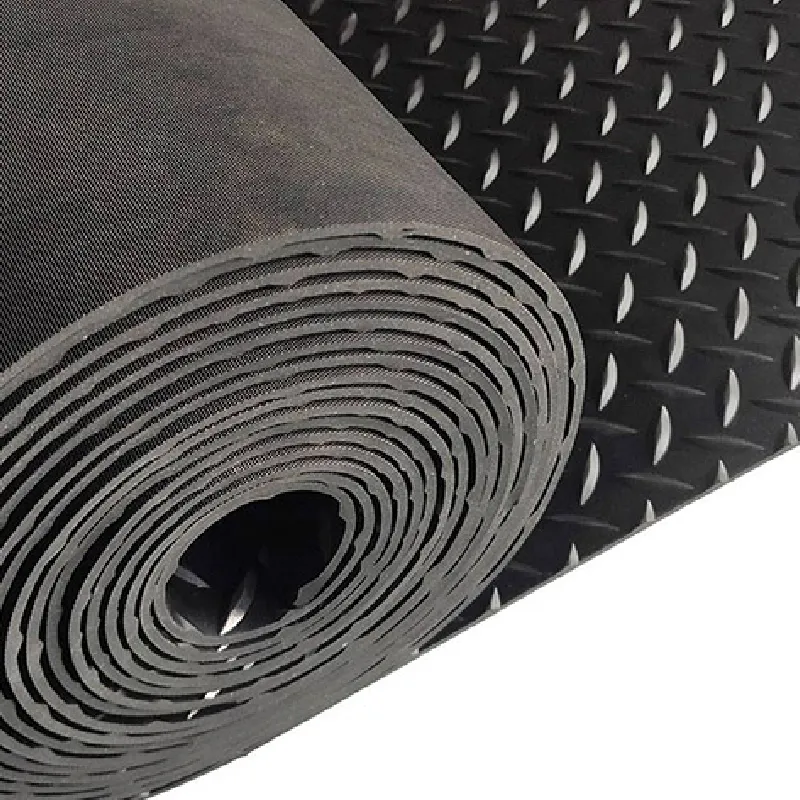
The subsequent phase involves vulcanization, a critical chemical process where the rubber compound is heated under pressure, causing the sulfur to form cross-links between the polymer chains. This transformation converts the plastic rubber into an elastic and durable material, imparting the characteristic strength, resilience, and dimensional stability required for a robust rubber bed mat. This can be achieved through compression molding for specific shapes or continuous vulcanization for roll goods. Post-vulcanization, the mats undergo precise cutting and trimming to meet the exact dimensions and contours required for various truck models, such as the High Density Light Truck Bed Rubber Mat 4mm 141.5×205cm C type. Each stage of the manufacturing process is subjected to stringent quality control measures, adhering to international standards such as ISO 9001 for quality management systems and ASTM standards for material properties. For instance, testing includes Shore A hardness, tensile strength, elongation at break, tear resistance, and resistance to environmental factors like oil, fuel, and UV exposure. These rigorous tests ensure the product meets specific performance criteria for durability, anti-slip properties, and chemical resistance, guaranteeing a long service life and consistent performance in demanding industrial applications, often exceeding 5-7 years under typical usage conditions.
Detailed Technical Specifications and Performance Data
The selection of an appropriate rubber mat for truck beds hinges on understanding its technical specifications and how these attributes translate into tangible performance benefits. For instance, the High Density Light Truck Bed Rubber Mat 4mm 141.5×205cm C type exemplifies a product engineered for optimal balance between protection, weight, and cost-effectiveness for light commercial vehicles. Its 4mm thickness provides substantial impact absorption and cushioning without adding excessive bulk or weight, which is crucial for fuel efficiency and payload capacity. The high-density composition ensures superior resistance to punctures, tears, and abrasions, making it ideal for protecting against damage from sharp tools, heavy equipment, and construction debris. Dimensions of 141.5×205cm are carefully calibrated to provide comprehensive coverage for a wide range of light truck beds, minimizing unprotected areas. The "C type" designation often refers to a specific pattern or fitment style, indicating a contoured design for a seamless integration with the truck bed's contours, preventing shifting and buckling.
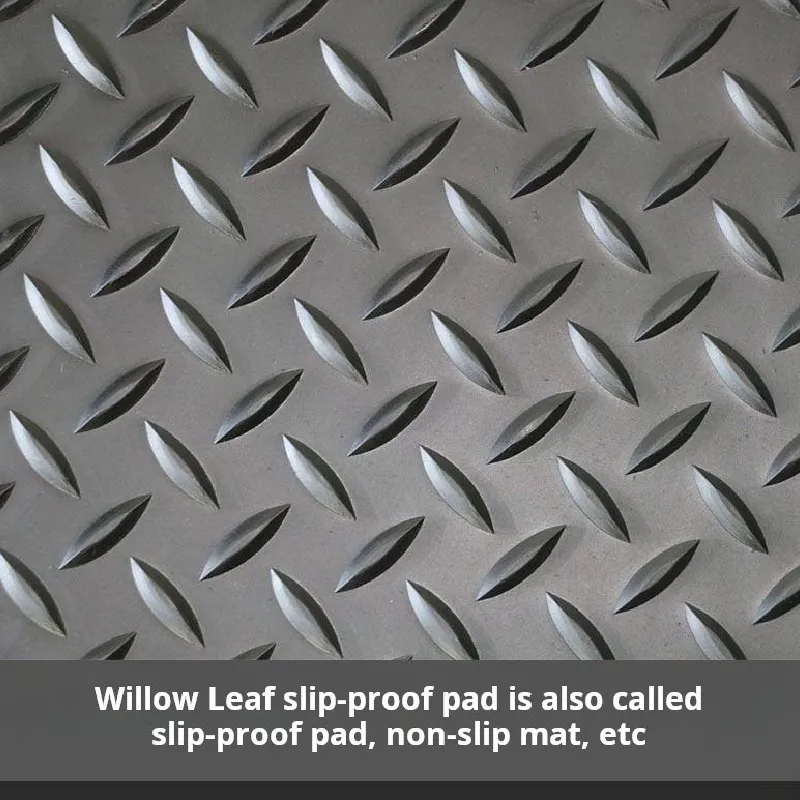
To further illustrate the robust characteristics of such specialized rubber mats for pickup beds, the following table details typical parameters and expected performance values based on industry standards and product specifications:
| Parameter | Specification (Typical) | Benefit / Importance |
|---|---|---|
| Material Composition | High-density SBR/EPDM blend with natural rubber reinforcement | Exceptional durability, weather resistance, and tear strength for extended lifespan. |
| Thickness | 4mm (approx. 0.16 inches) | Optimal balance of protection and flexibility; absorbs heavy impacts. |
| Density | ~1.45 g/cm³ (High Density) | Enhances resistance to compression set and reduces vibrations, improving cargo stability. |
| Tensile Strength | >4.0 MPa (ASTM D412) | Indicates robust material strength, preventing breakage under stress. |
| Hardness (Shore A) | 65 ± 5 (ASTM D2240) | Provides optimal balance between cushioning and resistance to indentation. |
| Temperature Range | -30°C to +80°C (-22°F to +176°F) | Ensures performance in diverse climates without cracking or becoming brittle. |
| Chemical Resistance | Resistant to common oils, grease, and mild acids | Protects against spills and corrosive substances, prolonging mat life. |
| Anti-slip Surface | Textured (e.g., cleated, ribbed, diamond plate pattern) | Secures cargo, preventing movement and damage during transit; enhances safety. |
These detailed specifications underscore the engineering precision behind modern rubber pickup bed mat solutions. The high density contributes significantly to sound dampening and vibration absorption, creating a quieter ride and reducing fatigue on structural components of the truck. Furthermore, the selection of materials and manufacturing processes ensures that these mats are not only robust but also easy to clean, requiring minimal maintenance. This combination of material strength, precise dimensions, and functional design attributes makes them an indispensable asset for commercial operations that prioritize vehicle longevity, cargo security, and operational efficiency.
Diverse Application Scenarios and Operational Advantages
The versatility of a well-engineered rubber bed mat extends its utility across an impressive spectrum of industries, providing critical protection and enhancing operational efficiency in varied challenging environments. In the construction sector, where heavy tools, equipment, and raw materials are routinely transported, these mats offer unparalleled protection against dents, scratches, and corrosion to the truck bed, preserving the vehicle's structural integrity and resale value. The anti-slip surface is crucial here, preventing the dangerous movement of heavy objects that could cause injury or damage during transit over rough terrain. For logistics and delivery services, the primary advantage lies in cargo security and damage prevention. Fragile packages, sensitive electronics, or temperature-controlled goods benefit from the cushioning and stability provided by a robust truck bed rubber mat, significantly reducing instances of transit damage and customer complaints. This directly translates to improved customer satisfaction and reduced claim processing, enhancing the efficiency of the supply chain.
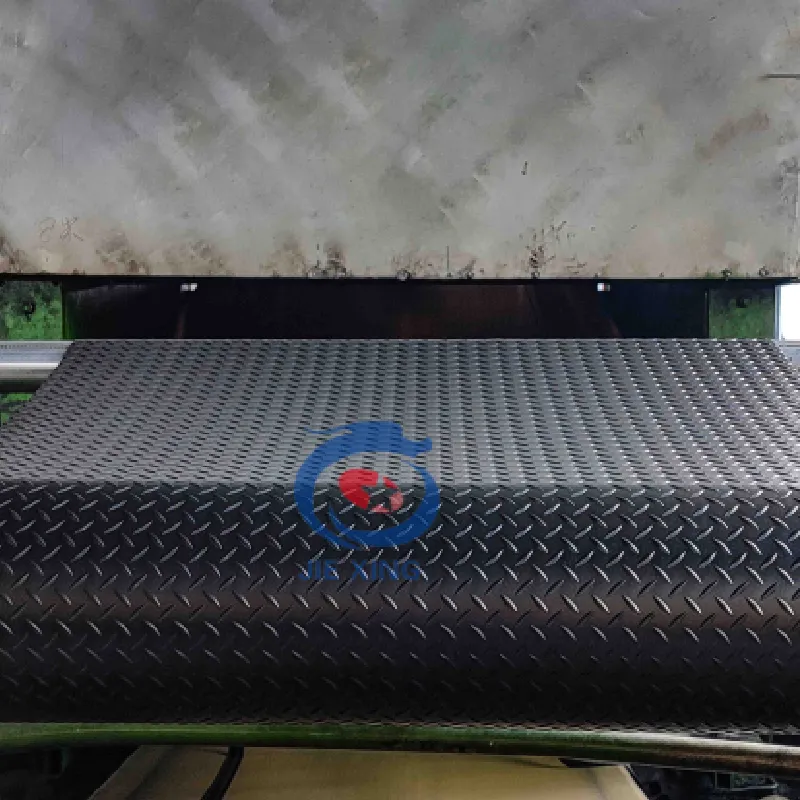
Beyond these sectors, the benefits resonate deeply within agriculture, where machinery parts, feed, and harvested crops require secure transport, often under dusty or muddy conditions. The ease of cleaning a rubber surface, compared to a bare metal bed, significantly reduces maintenance time and effort. In the petrochemical industry, the chemical resistance of specialized rubber mats for truck beds becomes paramount, protecting the vehicle from spills of oils, fuels, and various solvents that could otherwise degrade the bed lining. Similarly, for utility services, including electrical, plumbing, and telecommunications, these mats safeguard specialized tools and instruments, ensuring they arrive at job sites in perfect condition, ready for immediate use. Furthermore, for outdoor recreational businesses, such as those renting out kayaks, bicycles, or camping gear, a durable and resilient rubber mat for pickup beds provides essential protection for both their equipment and their vehicles, enhancing safety and client satisfaction. The energy-saving aspect, while not immediately obvious, comes from reduced vehicle maintenance, extended lifespan of the truck bed, and avoidance of cargo damage, which cumulatively contribute to lower operational costs and improved resource efficiency for fleet managers. The vibration dampening properties also reduce wear on truck components and sensitive cargo, extending overall product and vehicle life.
Comparative Analysis and Customization Capabilities
When evaluating suppliers for a high-performance rubber pickup bed mat, B2B decision-makers scrutinize factors beyond mere price. Leading manufacturers distinguish themselves through rigorous R&D, advanced material science, and superior quality control processes. While generic mats might offer an initial cost saving, they often fall short in terms of durability, chemical resistance, and precise fitment, leading to higher long-term replacement costs and inadequate protection. Reputable manufacturers invest in developing proprietary rubber compounds that enhance properties like UV stability, oil resistance, and tear strength, ensuring the mat performs consistently in diverse operational environments. For instance, some manufacturers might use recycled materials more extensively, impacting durability, while others prioritize virgin polymers for maximum resilience. Key differentiators include the consistency of thickness across the entire mat, the precision of the cut and fit for specific truck models, and the effectiveness of the anti-slip texture, which directly impacts cargo safety.
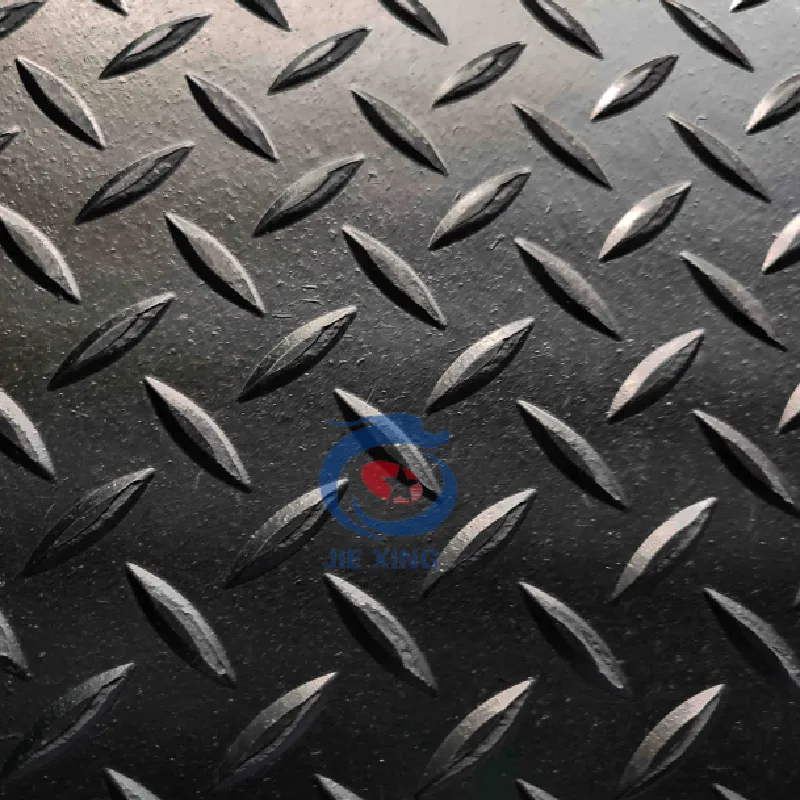
Beyond standard offerings, the capability to provide tailored solutions is a significant advantage for businesses with unique fleet requirements. Customization for a truck bed rubber mat can involve several aspects: bespoke dimensions to fit specialized truck beds or utility vehicles, specific material formulations to resist unusual chemicals or extreme temperatures, and unique surface textures for enhanced grip in particular applications (e.g., highly abrasive materials). A comprehensive customization process typically begins with a detailed consultation, where client needs and operational challenges are thoroughly assessed. This leads to design and engineering phases, often utilizing CAD software to create precise templates for CNC cutting. Prototyping allows for real-world testing and refinement before full-scale production. This bespoke approach ensures that the final rubber mat for truck beds is not just a protective layer, but an integral part of an optimized operational system, addressing specific pain points and enhancing efficiency. For example, a client in the mining sector might require a mat with exceptional tear strength and abrasion resistance due to hauling sharp, heavy ore, necessitating a specific blend of NBR and SBR with high filler content. This level of technical collaboration and flexible manufacturing underscores the value proposition of specialized suppliers over generic market alternatives, providing long-term value and operational reliability.
Real-World Applications and Client Success Stories
The tangible benefits of a premium rubber mats for pickup beds are best illustrated through real-world application cases that highlight significant improvements in fleet management and operational costs. For instance, a major North American construction company, facing consistent damage to their pickup truck beds from transporting rebar, concrete tools, and aggregates, implemented a fleet-wide upgrade to high-density rubber bed mats. Prior to the upgrade, they were incurring substantial repair costs annually, including welding, repainting, and addressing rust formation due to exposed metal. After installing the specialized rubber pickup bed mat solutions, they reported a 70% reduction in bed repair expenses within the first year. Furthermore, the anti-slip surface drastically reduced instances of shifting cargo, leading to fewer damaged materials and improved safety on job sites. This case demonstrates how a strategic investment in quality protection can yield significant returns through preventative maintenance and enhanced operational safety.
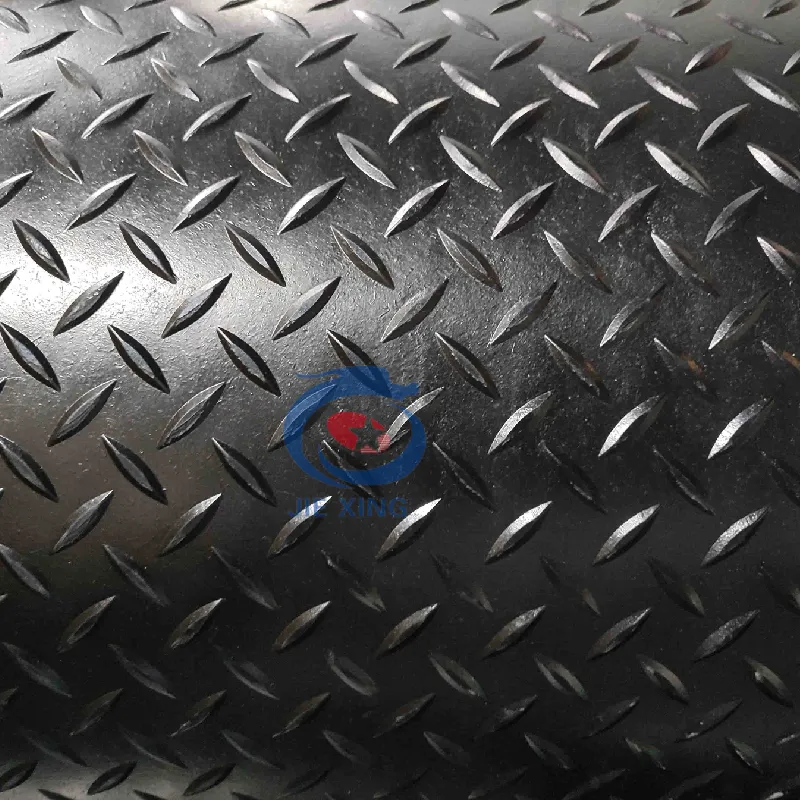
Another compelling example comes from a leading utility service provider operating in diverse climatic conditions, from freezing winters to scorching summers. Their trucks frequently carry sensitive electronic diagnostic equipment, cabling, and various tools, which were susceptible to impact damage and extreme temperature fluctuations within the bare metal beds. By implementing a high-density, weather-resistant truck bed rubber mat with superior insulation properties, they observed a marked reduction in equipment malfunction related to transit vibration and temperature extremes. The specialized rubber compound maintained its integrity and protective qualities across their vast operational range, demonstrating its resilience. Feedback from field technicians highlighted increased ease of cleaning compared to spray-on liners or thin plastic inserts, saving valuable time during routine vehicle maintenance. These anecdotal evidences and measurable results underscore the transformative impact that a high-quality rubber mat for truck beds can have on operational efficiency, equipment longevity, and overall cost savings for businesses relying heavily on their commercial vehicle fleets. The ability of these mats to dampen noise and vibration further contributes to a more comfortable and less fatiguing environment for drivers, indirectly enhancing safety.
Trustworthiness and Support for Business Clients
For B2B clients, establishing trust with a supplier of critical components like a rubber bed mat is paramount. This trust is built upon a foundation of transparent processes, robust quality assurance, and dedicated customer support. Reputable manufacturers back their products with comprehensive certifications, such as ISO 9001:2015, which signifies a commitment to consistent quality management systems, from raw material procurement to final product inspection. Additional certifications, like those related to environmental management (ISO 14001) or specific industry compliance standards, further attest to a manufacturer's adherence to best practices. A clear and concise delivery cycle explanation is crucial for fleet managers to plan their maintenance and upgrade schedules effectively. For instance, a typical delivery cycle for standard products might be 7-14 business days, while custom orders could range from 3-6 weeks depending on complexity and volume, with real-time tracking options available to clients. This transparency ensures predictable logistics and minimizes operational disruptions for the client.
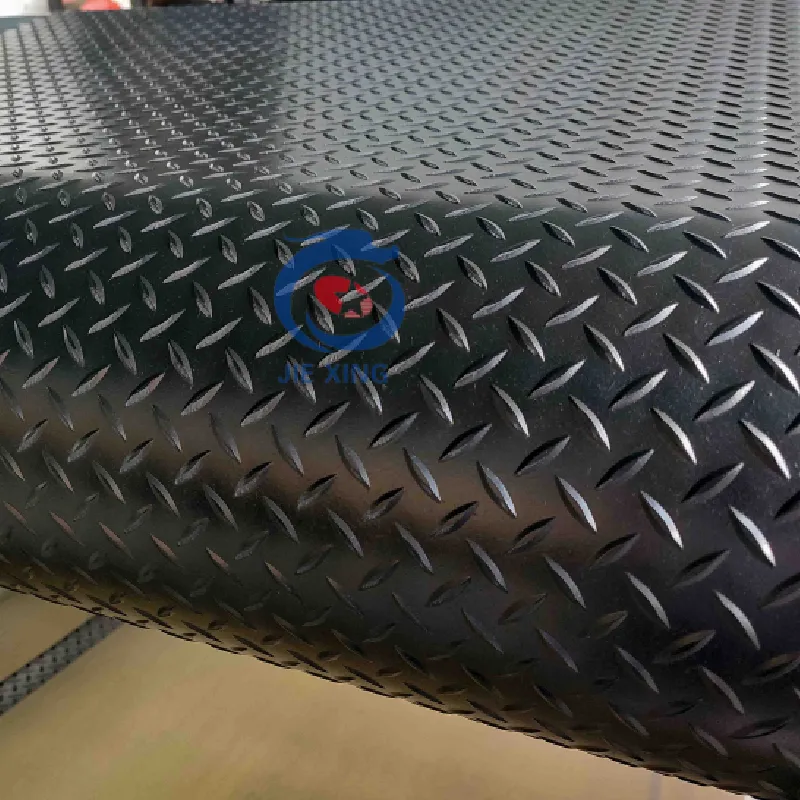
Furthermore, a strong product warranty is a testament to the manufacturer's confidence in their rubber mats for truck beds. A typical warranty might cover manufacturing defects for a period of 1 to 5 years, providing peace of mind and safeguarding the client's investment. Beyond initial purchase, robust after-sales support, including technical assistance, installation guidance, and troubleshooting, ensures maximum value from the product. Dedicated account managers and readily available technical support teams facilitate seamless communication and quick resolution of any queries or issues. This holistic approach to client service – encompassing certifications, clear logistics, comprehensive warranties, and proactive support – reinforces a supplier’s reliability and makes them a trusted partner in fleet maintenance and protection strategies. This commitment to long-term client relationships ensures that businesses can confidently integrate high-quality rubber bed mat solutions into their operations, knowing they are supported by a dependable and authoritative partner.
Frequently Asked Questions (FAQ)
Q1: How does a high-density rubber mat compare to spray-on liners in terms of protection?
While spray-on liners offer permanent bed protection, a high-density truck bed rubber mat provides superior cushioning against impacts and vibrations, which is crucial for sensitive cargo. Mats are also removable for cleaning or access to the truck bed's drain plugs, and can be easily replaced if heavily damaged, often at a lower cost than repairing a spray-on liner. They also offer better anti-slip properties and noise dampening than most spray-on applications.
Q2: What is the typical lifespan of a commercial-grade rubber mat for truck beds?
A high-quality commercial-grade rubber mats for truck beds made from durable rubber compounds like SBR/EPDM can last anywhere from 5 to 10 years, depending on the intensity of use, exposure to harsh chemicals, and environmental conditions. Regular cleaning and proper fitment can further extend its lifespan.
Q3: Are these mats resistant to common industrial fluids like oil and fuel?
Yes, high-quality rubber pickup bed mat products are typically engineered with specific rubber blends (e.g., higher NBR content) to exhibit excellent resistance to common industrial fluids such as oils, grease, gasoline, and mild acids. This feature is vital for protecting both the mat itself and the truck bed underneath from corrosive spills, preventing degradation and maintaining the mat's integrity over time.
Q4: Can these rubber bed mats be custom-fitted for specific truck models or unique applications?
Absolutely. Many professional manufacturers offer custom solutions for rubber bed mat products, allowing for precise sizing, unique cut-outs for tie-downs or access points, and even specialized material formulations to meet specific client requirements. This ensures a perfect fit and optimal performance for any commercial truck model or niche application.
Conclusion and Future Outlook
The robust and technically advanced truck bed rubber mat has evolved from a simple protective layer into an indispensable component for optimizing the performance and longevity of commercial pickup and light trucks. Its multifaceted benefits, ranging from superior cargo protection and enhanced safety to significant reductions in vehicle maintenance costs and improved operational efficiency, underscore its critical role in modern fleet management. As industries continue to demand more durable, versatile, and cost-effective solutions for their transport needs, the advancements in rubber material science and manufacturing processes will further solidify the position of high-density rubber mats as the preferred choice for discerning B2B clients. The future of truck bed protection will likely see continued innovation in sustainable materials, smart sensing capabilities integrated into mats for cargo monitoring, and even more tailored, application-specific designs to meet the evolving complexities of global supply chains and diversified commercial operations. Investing in a high-quality rubber mat for truck beds is not just a purchase; it is a strategic decision that safeguards assets, enhances operational flow, and contributes directly to the bottom line for any business relying on its fleet.
Authoritative References
- American Society for Testing and Materials (ASTM) International Standards for Rubber and Elastomers.
- International Organization for Standardization (ISO) 9001: Quality Management Systems – Requirements.
- Rubber Chemistry and Technology, a journal by the American Chemical Society Rubber Division.
- Materials Science and Engineering: A, focusing on structural materials.
- National Institute of Standards and Technology (NIST) publications on material properties and testing.
-
Durable Seal for Oven Door: Perfect Fit, Energy EfficiencyNewsSep.01,2025
-
Durable Silicone Strip Seals: Premium Weather & Door SealingNewsAug.31,2025
-
Premium Seal for Oven Door | Maximize Heat & Energy EfficiencyNewsAug.30,2025
-
Premium Anti Slip Stair Strips: Enhance Safety & Prevent FallsNewsAug.29,2025
-
Clear Corner Protectors: Child Safety for Tables & EdgesNewsAug.28,2025
-
Weather Stripping Door Standard Sizes and Custom CutsNewsAug.12,2025
-
Seal for Oven Door Cleaning and Maintenance TipsNewsAug.12,2025